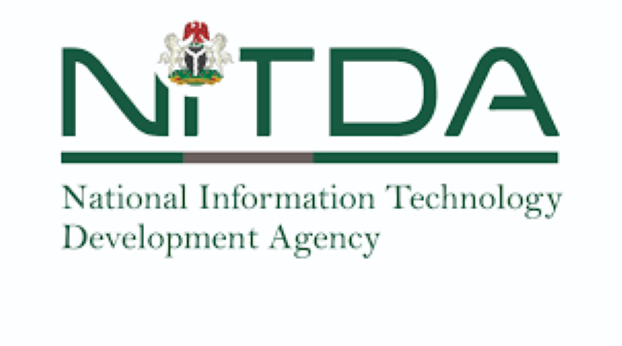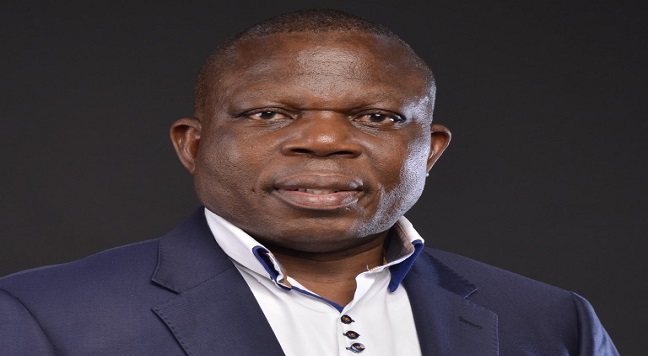News
TNW Conference Extols Nigeria’s Innovative Approach in Development of Startup Act

Nigeria’s Innovative approach in the development of the Nigeria Startup Act was celebrated by the global technology ecosystem stakeholders during the Deep Tech Roundtable, held as part of ‘The Assembly’, one of the strategic sessions of TNW.

This year’s The Next Web (TNW) Conference was held from 15th to 16th June, 2023, at the Taets Art and Event Park, Amsterdam.
Kashifu Inuwa Abdullahi, CCIE, the Director General/CEO, National Information Technology Development Agency (NITDA), was in attendance as a Special Guest and participated in several roundtable sessions including ‘The Assembly’ and the Startup Genome Ecosystem Leadership Forum.
The DG who was represented by Dr Usman Gambo Abdullahi, Director, Information Technology Infrastructure Solutions, highlighted some of Nigeria’s initiatives focused on fostering the growth and development of the country’s startup ecosystem.
Inuwa informed that one key legislation co-created by ecosystem stakeholders, the Nigeria Startup Act (NSA), is an example of the country’s approach to Developmental Regulation, one of the pillars of the National Digital Economy Policy and Strategy for a Digital Nigeria (NDEPS).
That the NSA project, a joint initiative by Nigeria’s tech ecosystem and the Presidency driven by Federal Ministry of Communications and Digital Economy, was aimed at harnessing the potentials of Nigeria’s digital economy through co-created regulations.
That the objectives of the Act include, among others, to provide an enabling environment for the establishment, development and operation of startups in Nigeria; to provide a legal and institutional framework for the development of startups in Nigeria; to provide for the development and growth of technology-related talents; and to position Nigeria’s startup ecosystem as the leading digital technology centre in Africa, having excellent innovators with cutting edge skills and exportable capacity.
The DG further informed that the Act is made up of ten (10) parts which cuts across five (5) drivers, namely collaboration, engagement, incentives, linkages and support. That the Act intends to increase collaboration within Government and its interactions with ecosystem practitioners by the establishment of the National Council for Digital Innovation and Entrepreneurship.
That the Council will be presided over by the President as Chairman alongside representatives of the Federal Executive arm of Government, the Director General of NITDA as Secretary and representatives of the Nigeria Computer Society, the Computer Professionals Registration Council of Nigeria and the Startup Consultative Forum.
That the Council is to monitor and evaluate regulatory frameworks; formulate and implement policy guidelines, oversee the harmonisation of laws, and regulations for the development of startups in Nigeria.
That NITDA is to serve as the Secretariat of the Council with the DG to serve in a dual capacity of both the Secretary of the Council and the Head of the Secretariat.
Additionally, Inuwa highlighted the establishment of a Startup Support and Engagement Portal which is to serve as a ‘One-Stop-Shop’ for startups to register with all relevant regulatory Agencies of Government. This is aimed at saving time as well as associated costs when engaging the Agencies on individual basis.
It will also facilitate the improvement of the ease of doing business within the tech ecosystem, in line with the provisions of the Presidential Enabling Business Environment Council (PEBEC).
The NITDA Boss also highlighted the establishment of a Startup Investment Seed Fund, to be managed by the Nigeria Sovereign Investment Authority (NSIA).
The fund will target early-stage startups, hubs and other entities that support the startup ecosystem. That the fund is to be funded annually with a minimum of N10,000,000,000.00 (Ten Billion Naira) towards financing labelled startups and others as seed funds, grants or loans.
He also indicated that these and many other provisions of the Act present a promising future for startups in Nigeria. That Nigeria’s hope is for the Act to serve as a veritable tool towards fostering the development and sustenance of an enabling Startup ecosystem in the country.
He therefore called on stakeholders to support the Secretariat in realizing the potentials of the Act.
Stakeholders in attendance hailed Nigeria’s approach and opined that it is an excellent example of co-created regulation for others to emulate. Matt Smith, Director, Policy and Research, the Global Entrepreneurship Network (GEN), in his remarks, revealed that he has been following with keen interest the unprecedented developments in Nigeria’s Startup ecosystem.
That often, governments seeking to empower entrepreneurs tend find themselves developing and implementing a complex range of reforms, policies and programmes that cut across ministerial and departmental portfolios.
That without central coordination, it is easy for such reforms to stall due to limited legislative capacity, disagreements between responsible departments, or end up with duplicate or competing initiatives between departments.
That Nigeria’s innovative approach in the crafting of the Startup Act will no doubt minimize such pitfalls, offers a promising future for the country’s entrepreneurship ecosystem and is already inspiring similar startup acts around the world. He therefore said that Nigeria deserves commendation for this innovative approach.
News
New Horizons Invests N50m to Empower Almajiris with Skills

New Horizons Nigeria has launched a N50 million initiative aimed at transforming 21 Almajiri children into skilled computer technicians within 90 days, to tackle youth unemployment and harness human potential.

The Almajiri-to-Tech programme, officially launched in Abuja on Monday, provides participants with full training, meals, clothing, tools, and logistics support, all fully funded.
Speaking at the launch, the Chief Executive Officer of New Horizons, Tim Akano, said the programme represents a new journey in the history of Nigeria by restoring the original purpose of the Almajiri system, which he described as “children sent out to seek knowledge.”
“The word Almajiri comes from an Arabic term meaning emigrant and seeker of knowledge. Historically, children were sent to learn morals, responsibility, and skills to add value to society,” Akano said.
He added that the disruption of this system during colonial times forced many children onto the streets, a challenge that persists today.
Akano highlighted the urgency of addressing the Almajiri issue, noting that there are an estimated 15 million Almajiris in the country, with a population growth rate of around three per cent annually.
“If we do not solve this problem as a country, we are sitting on a time bomb,” he warned.
According to him, the programme focuses on hands-on technical skills rather than theory. Trainees will learn to repair mobile phones, laptops, televisions, radios, standing fans, and other electronic devices, as well as build inverter batteries using recycled electronic waste.
“We are not teaching theory. We are teaching practical skills you can use to earn a living,” Akano said, stressing that the programme will not interfere with the participants’ Quranic education.
“We are still going to allow you, within the period of learning. Your learning computer here is not stopping your Quranic education.
“You still have time within our space here. Whenever you want to go and pray, you can pray, then come back to class,” the CEO stressed.
He added that participants will also receive daily meals, water, T-shirts identifying them as technicians-in-training, and access to all necessary tools and equipment throughout the 90-day programme.
Akano said the initiative is part of a larger mission by New Horizons Nigeria, which has spent the past 21 years training about 100,000 Nigerians annually in IT and related skills.
He said the new programme aims to “take human genius off the streets and convert it into human capital, enabling these youths to contribute meaningfully to the economy.”
He added that equipping Almajiris with skills could add 15 million people to Nigeria’s workforce and potentially increase the country’s GDP by as much as $20 billion, stressing that productivity depends on practical skills and opportunity.
“Everything that can be taught can be learned. If someone can memorize the Quran cover to cover, there is nothing that cannot be done. What they lack is information, opportunity, and infrastructure, and we are providing all of that,” Akano said.
Akano also stressed that the initiative is designed to inspire other organizations and government agencies to replicate similar programmes across the country.
“This is not just about 21 children; it is about showing Nigeria what is possible when resources meet intention and planning.
“If we succeed in empowering these Almajiris, we demonstrate that the country can turn social challenges into economic opportunities. It’s a blueprint for Nigeria’s future,” he said, noting that the initiative combines social reform, technical education, and economic empowerment.
Also speaking, one of the trainees, Fatima Umar, appreciated the organisers and promised to maximise the opportunity.
“We’ll make you proud of us. We have nothing to say here but to thank and appreciate you. May Almighty Allah continue to guide and protect you,” Umar said.
News
IMF Upgrades Nigeria’s 2026 Growth Projection to 4.4%

International Monetary Fund has upgraded Nigeria’s 2026 economic growth projection to 4.4 per cent, reflecting improved macroeconomic stability and sustained reforms.

IMF
The January 2026 World Economic Outlook Update forecasts Nigeria’s growth trajectory at 4.1 per cent in 2024, 4.2 per cent in 2025, and 4.4 per cent in 2026—a 0.2 percentage point increase from the October 2025 estimate.
This aligns with sub-Saharan Africa’s projected 4.6 per cent expansion in 2026 and 2027, driven by regional stabilisation efforts.
Globally, the IMF anticipates 3.3 per cent growth amid resilient conditions tempered by trade policy shifts and technology investments. For Nigeria, declining energy prices—expected to fall seven per cent due to weak demand—pose risks, though OPEC+ coordination and China’s stockpiling provide support.
Despite the optimism, downside risks persist from Middle East and Ukraine tensions, protectionism, high debt, and fiscal deficits. The Fund recommends rebuilding fiscal buffers, ensuring central bank independence, and limiting temporary fiscal measures to maintain stability.
Nigeria’s success hinges on consistent reforms and resilience against domestic and global shocks, the IMF concluded.
News
Nigeria’s Crude Output Falls to 1.486mbpd in November – OPEC

Organisation of Petroleum Exporting Countries (OPEC) reports that Nigeria’s crude oil production, excluding condensate, dropped by 0.7 per cent to 1.486 million barrels per day (mbpd) in November 2025 from 1.496 mbpd in October.

OPEC
The figure, drawn from secondary sources in OPEC’s December 2025 Monthly Oil Market Report, fell short of Nigeria’s 1.5 mbpd quota. Direct communication data showed output at 1.436 mbpd, up from October’s 1.401 mbpd, but still below target.
Nigeria produces around 196,028 bpd of condensate, excluded from quota calculations per Nigerian Upstream Petroleum Regulatory Commission figures. Year-on-year, November’s output marked a slight gain over 1.417 mbpd in November 2024.
Expert Cites Insecurity, Governance Gaps
Petroleum economics expert Wumi Iledare described the quota miss as unsurprising, blaming persistent insecurity, an ageing oil basin lacking new finds, and unoffered hydrocarbon blocks. Governance shortcomings and policy uncertainty further erode investor confidence, he noted.
Selective implementation of the Petroleum Industry Act worsens the situation, with Nigeria needing a single authoritative leader for the sector rather than multiple proxies, Mr Iledare stressed. The country has struggled to consistently hit OPEC targets for years.

 E-Financial2 days ago
E-Financial2 days agoHere Are Nigerian Banks That Have Secured Their Licences

 Telecom2 days ago
Telecom2 days agoMTN CEO Toriola Hails Nigeria’s Telecom Transformation at MIPAD

 E-Financial2 days ago
E-Financial2 days agoZenith Bank Top Nigerian Bank Pick Ahead of GTCO, AccessCorp

 News2 days ago
News2 days agoICPC Charges Ozekhome with Forgery, Corruption Over London Property

 E-Financial2 days ago
E-Financial2 days agoNigeria Processed $92.1Bn Crypto Transactions in 12 Months — PwC

 Telecom2 days ago
Telecom2 days agoLebara Launches Agent Registration Portal

 E-Financial2 days ago
E-Financial2 days agoHow Crypto Criminals Stole $700m from People – often Using Age-Old Tricks

 E-Business2 days ago
E-Business2 days agoElon Musk Seeks $134Bn from OpenAI, Microsoft for ‘Wrongful Gains’
























